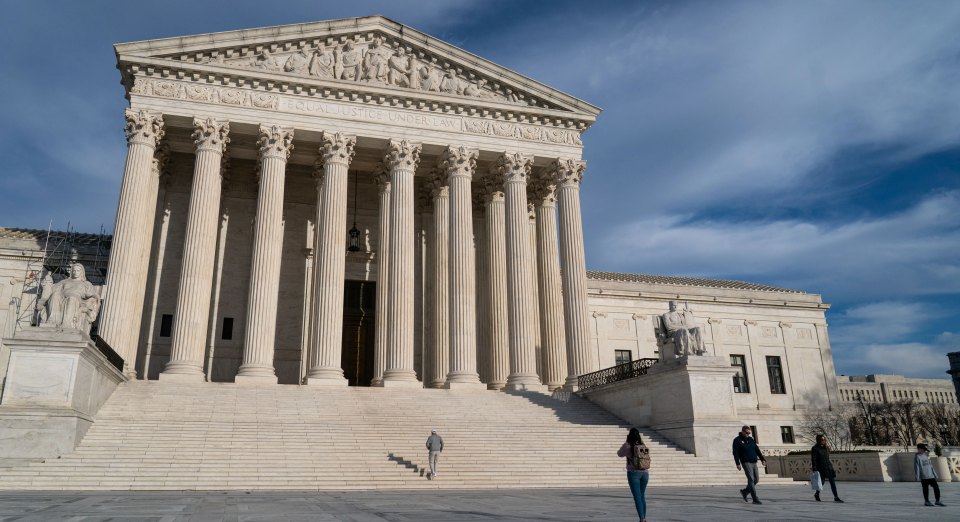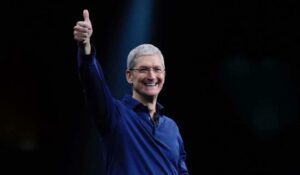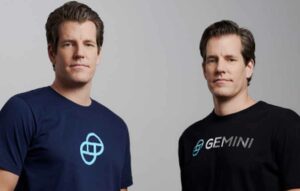
In a big blow to inventions generated by artificial intelligence (AI), the Supreme Court of the United States on Monday refused to issue patents for AI inventions created by computer scientist Stephen Thaler. The highest court in the country rejected Thaler’s lawsuit over AI-generated inventions.
According to a report from Reuters, Thaler has challenged the U.S. Patent and Trademark Office for its refusal to issue patents for inventions his artificial intelligence system created.
The justices on Monday turned away Thaler’s appeal of a lower court’s ruling, adding that patents can be issued only to human inventors and that his AI system could not be considered the legal creator of two inventions that he has said it generated, Reuters said.
The court ruled that patents can only be granted to human inventors and that Thaler’s AI system, which he calls DABUS (Device for the Autonomous Bootstrapping of Unified Sentience), cannot be recognized as the legal creator of the two prototypes it generated. Thaler is the founder of Imagination Engines Inc, a technology company specializing in advanced artificial neural networks. He claims that DABUS independently created a beverage holder and an emergency light beacon.
Last year, the U.S. Court of Appeals for the Federal Circuit upheld the decisions of the U.S. Patent and Trademark Office and a federal judge in Virginia to reject Thaler’s patent applications for his inventions. They ruled that DABUS is not a person and, as per U.S. patent law, inventors must be human beings without any ambiguity.
Thaler told the Supreme Court that AI is being used to innovate in fields ranging from medicine to energy and that rejecting AI-generated patents “curtails our patent system’s ability – and thwarts Congress’s intent – to optimally stimulate innovation and technological progress.”
In a brief filed in support of Thaler’s case in the Supreme Court, Harvard Law professor Lawrence Lessig, and other academics stated that the Federal Circuit’s decision “jeopardizes billions (of dollars) in current and future investments, threatens U.S. competitiveness and reaches a result at odds with the plain language of the Patent Act.”
- SEO Powered Content & PR Distribution. Get Amplified Today.
- Platoblockchain. Web3 Metaverse Intelligence. Knowledge Amplified. Access Here.
- Minting the Future w Adryenn Ashley. Access Here.
- Source: https://techstartups.com/2023/04/24/us-supreme-court-refuses-to-issue-patents-for-ai-generated-inventions/
- :has
- :is
- :not
- a
- ability
- Act
- advanced
- AI
- Ambiguity
- an
- and
- any
- appeal
- appeals
- applications
- artificial
- artificial intelligence
- Artificial intelligence (AI)
- artificial neural networks
- AS
- At
- autonomous
- BE
- beacon
- being
- BEVERAGE
- Big
- billions
- blow
- by
- Calls
- CAN
- cannot
- case
- challenged
- claims
- company
- competitiveness
- computer
- considered
- could
- country
- Court
- created
- creator
- Current
- decision
- decisions
- device
- dollars
- emergency
- energy
- Engines
- Federal
- Fields
- For
- founder
- from
- future
- generated
- granted
- harvard
- he
- highest
- holder
- HTTPS
- human
- imagination
- in
- independently
- innovate
- Innovation
- Intelligence
- intent
- inventions
- Inventors
- Investments
- issue
- Issued
- IT
- ITS
- jpg
- judge
- language
- Law
- lawsuit
- Legal
- light
- medicine
- Monday
- networks
- Neural
- neural networks
- Odds
- of
- Office
- on
- only
- Other
- our
- over
- patent
- Patents
- person
- Plain
- plato
- Plato Data Intelligence
- PlatoData
- Professor
- Progress
- prototypes
- ranging
- Reaches
- recognized
- result
- Reuters
- ruling
- s
- Said
- Scientist
- specializing
- stated
- States
- Stephen
- support
- Supreme
- Supreme Court
- system
- technological
- Technology
- that
- The
- they
- threatens
- to
- trademark
- Turned
- u.s.
- unified
- United
- United States
- us
- used
- virginia
- which
- with
- without
- year
- zephyrnet












